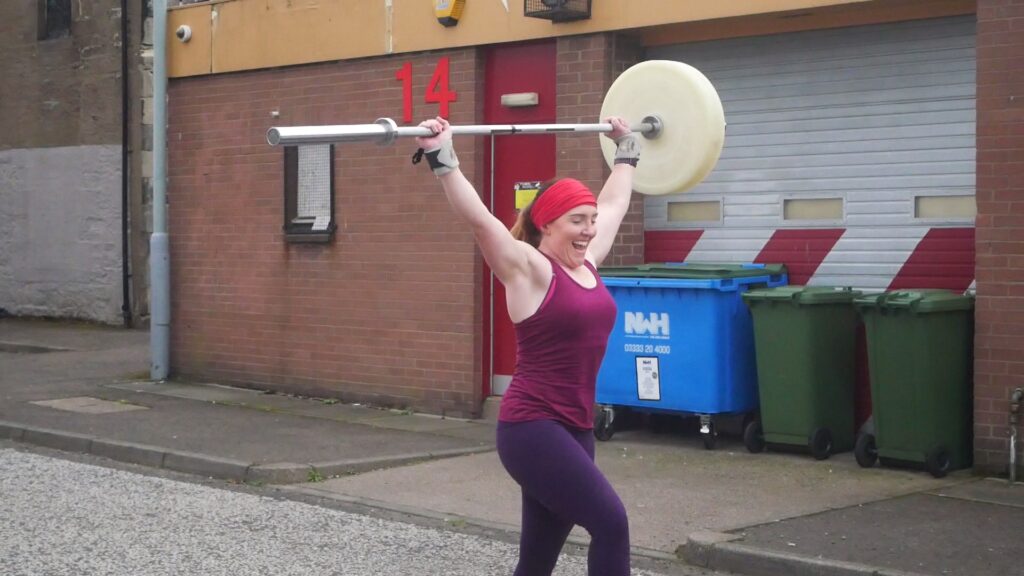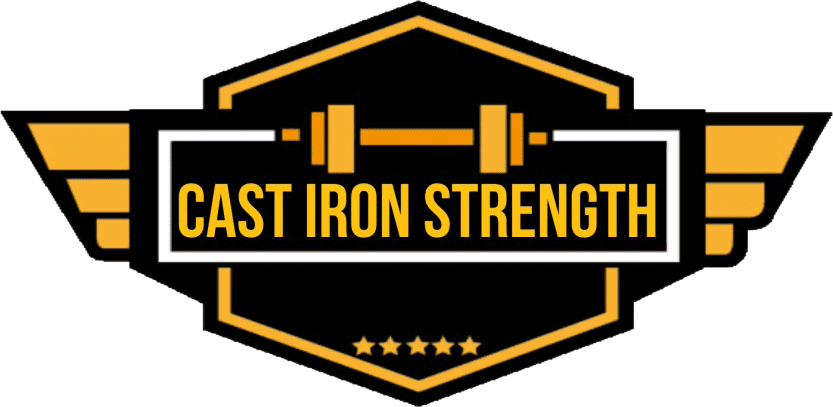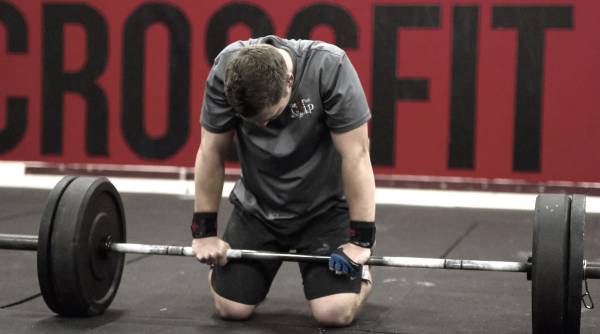When you are in the lifting game for longer than a minute you are going to come across the ups and the downs that come with this sport or hobby. For those who are fleetingly interested or maybe only looking at lifting as something, you don’t really have any aspirations to develop with or to advance with then these are problems and situations you probably won’t come across. However, if you have aspirations of improving as a lifter or trying to be as competitive as possible then you are going to encounter the grind and churn of performance sport. This article isn’t only for those who want to be a lifter or who are already lifters it’s for anyone who wants to go as far as they can in a hobby, sport, or even to some end career or business I guess.
What is stoicism
Stoicism is a school of Hellenistic philosophy founded by Zeno of Citium in Athens in the early 3rd century BC. It is a philosophy of personal ethics informed by its system of logic and its views on the natural world. According to its teachings, as social beings, the path to eudaimonia (happiness, or blessedness) is found in accepting the moment as it presents itself, by not allowing oneself to be controlled by the desire for pleasure or fear of pain, by using one’s mind to understand the world and to do one’s part in nature’s plan, and by working together and treating others fairly and justly.
Wikipedia 2020
Stoicism isn’t what you might consider perfect. There are some ways you could easily interpret the ideas to be sociopathic or completely detached from reality. However, I think it represents a good avatar for how I think we can start to develop a philosophy or framework for how we are going to react to the ups and downs of lifting.
Every time we enter into a session or we complete our own interpretations, hopes and dreams interact with reality. I think from an objective standpoint your ability to lift or to not lift a weight has to be one of the most concrete experiences you can have in sport or maybe even in life. You can buy into all the mind and matter crap you want but if you load 200% of your one rep max and try to lift it that son of a bitch isn’t going to go anywhere.
Take yourself out of the equation
The first step to trying to develop a more helpful or less emotional view on your own training is to remove your ego from the equation. Your ego is defined by the cambridge dictionary as
ego
noun [ C ]
UK /ˈiː.ɡəʊ/ US /ˈiː.ɡoʊ/
plural egos
your idea or opinion of yourself, especially your feeling of your own importance and ability:
PSYCHOLOGY specialized in psychoanalysis, the part of a person’s mind that tries to match the hidden desires (= wishes) of the id (= part of the unconscious mind) with the demands of the real world
In his excellent book, Ryan Holiday addresses the Ego or your sense of self and how the stoic world view can help you temper and remove your ego from your everyday life. When it comes to lifting your Ego can be both your greatest asset and your greatest downside. Your ego will give you the confidence and belief required to push your limits and to try new and heavier weights that will help you to develop as a stronger and more accomplished lifter. Your ego will also make you question what you are doing and if this is the correct path, do you really need to do this rehab? Is focusing on my technique going to make me any better? This program is too light for me I am not going to get stronger doing this!
There is a constant tug of war that goes inside your head between self-belief and self-doubt. The goal is not to remove this tug of war from inside of your head because that isn’t possible. The goal is to frame your practice and to go about your task or training in the most fruitful way. To begin this process we need to remove yourself from the equation, we need to start by making a plan for someone else. Start off with a pen and paper, imagine you are a coach and you are creating a plan for an athlete. Where is the athlete strong, where are they weak, what is the time frame you have and how would your time be best spent with this athlete.
By this process of planning for someone else we can remove how we feel about training or what we want to achieve out of the process as best as we can. Or we can of course remove ourselves from the equation completely and get a coach.

Set goals based on process rather than outcome.
We are lifters here we all get it we want to lift all of the weight, hold all of the records and win all of the comps. However, these are all outcome-focused goals that are inherently attached to ego and emotion. We want to lift this weight, hold this record or win this competition because it’s going to give us the good feels, we are going to feel accomplished and everything is going to be better with our lives if we could only lift this amount by this time. Well not to be a damp squib but nothing other than your powerlifting total or gym personal best is going to change if you manage to lift x weight by y date. Trapping your sense of self-worth in how good you are at hoisting bits of metal off the floor or in other ways isn’t really a good fundamental basis for your existence.
Whilst not being the best thing to do emotionally even from a pragmatic point of view of trying to be the best athlete you possibly can be, being outcome or result-oriented isn’t the best option either as it is going to lead you to make short-sighted and greedy decisions. As such your goal setting should be based on process rather than the outcome.
Examples of outcome oriented goals
- I will squat 200kg by my birthday next year.
- I will win nationals in the next 2 years.
- I will total 500 wilks in the next 12 months.
- I will be in the top 10 of open powerlifting for my weight class by the time I am 25
Examples of process-orientated goals
- I will perform my shoulder prehab before every training session.
- I will video and review every working set of an important lift
- I will try and execute every eccentric with the best positions posible
- I will try and accelerate every concentric as hard as I possibly can
The whole focus of an outcome-oriented goal is that you are putting the end before the means. You are stating the things you want to accomplish and putting time pressures on them before you begin focusing on the work needed to achieve the goals. An outcome orientated goal is good at turning a positive into a negative. Yes, that set was technically a personal best but I am behind where I need to be to achieve the arbitrary target I have set myself.
It also can lead you into making short-sighted and poor decisions where you are essentially trying to force progress rather than trying to cultivate it and generate momentum. This can lead to you being in perpetual states of overreach leading to worsened performance and much higher chances of injury.
If you are process orientated in your goal setting then you are going to be focusing on actions day to day and moment to moment. If you are smart about the processes and goals you choose to target then you will be creating a platform from where progress will come from. If you do most of the right things, most of the time then chances are pretty good you will get good outcomes. A lot of the secret to strength training progress and certainly long term strength training progress is developing momentum in your training. In strength training it’s almost like a compounding effect when things are going well they continue to go well and oftentimes pick up pace as they improve.
It is my belief that once you are in a pattern of outcome chasing or trying to force progress you enter into a negative spiral where the more you try to force it the worse the outcomes become. Conversely when you are focused on controlling your actions, embedding yourself in the proces and endeavouring to make the right decisions in the moment consistently then progress is cultivated and is self perpetual.
Not only expect but lean into adversity
If you are in lifting for the long haul (and lifting is realistically a sport you can do right up to the point you are put in a box) then with 100% certainty the following is going to happen
- Life circumstances will seriously hamper and curtail your ability to train the way you would like, for as long you would like and where you would like.
- You are going to get injured
- You are going to hit plateaus
- You will probably lose some drive and motivation for the sport and your passion will dampen
To name but 4 things that could, can and will go wrong when it comes to improving as a lifter or athlete on a long enough time frame. We can’t control these things if they happen, why they happen, and when they happen. We can maybe have some kind of influence over them but that influence is a mitigating factor probably at best. We can’t control every factor and we can’t avoid the adversity that is going to befall us both in life and in training. What we do control are our actions and how we deal with it. Let’s explore this concept with probably the most common bit of adversity that is going to be out of your control and how you can deal with it.
You can’t train X because you have injured Y.
The nature of lifting as a sport means you are constantly going to be rubbing up against some kind of overuse niggle or injury chances are one of these is going to turn into something that means you will be forced to alter or adapt your training. We can use this as an opportunity to
- Learn something new about injury management (through load management in the program) and specific interventions such as conditioning/strengthening work and maybe some mobility work.
- Learn how to adapt your training and try out new movements, new implements and new methods.
- Develop your mindset as an athlete if you can’t do your sports specific training you can take time to do some visualisation and develop your mental skill set.
- You can take time to learn more around nutrition and recovery. Sleep hygiene and double down on the things outside of training you maybe didn’t have time to focus on but now can double down on.
- Humble yourself to go and seek out someone who has a a different skill set such as a physiotherapist or rehab specialist and take what you can from their input and guidance.
- Set out goals and targets on some aspects of training you don’t normally focus on but could be of worth further down the road. For example if you have a lower limb injury it’s the perfect time to focus on upper body size and strength.
The difference is to take something like a growth mindset into the situation where there is adversity and challenge and use it as a chance to grow and adapt.

Failure is a datapoint and not something to be scared of.
It’s a trope to the point where we could choose any number of sayings pulled from the internet in a nice motivational format (which I will have no doubt done by the time I have hit publish on this blog post) fall down 100 times, get up 101 times, you get the vibes. Fear of failure and apprehension of what might happen are the things that hold the most amount of people back from doing what they want to do. We could probably do a number of PHDs on the topic and publish a whole laundry list of self help books but I don’t have any intention on getting stuck into either.
When you want to get better at something or you want to improve you are going to fail and you are going to fail often. In lifting, you are going to fail lifts and sets it is going to happen.
But what if I fail the lift?
So fucking what if I fail the lift?
Two different ways of framing the same question. The worst-case scenario for failing a lift is likely to be you have to dump the bar on the safeties, your spotters have to take it or if your not confident in ditching a bar and are a dumbass you might be a bit embarrassed and end up on an Instagram fail highlight reel. Basically the cost of failure is pretty much zero when it comes to lifting. So why are you so afraid of it?
No one is going to think any less of you if you don’t manage to lift that bit of metal in this certain way on this certain day. The truth is your not that big of a deal and your hobby sure as fuck isn’t that big of a deal. It’s a big deal to you sure and you are definitely a big deal to you but the reality of the situation is your one of over 7,000,000,000 bipedal primates milling about the earth at this point in time. Your actions aren’t that relevant in the grand scheme really and your actions during your hobby don’t echo through eternity now stop making a big fuss about it and crack on.
You should look at the results of training and inputs as data points you can use to test hypotheses (training ideas or programs) and take them for what they are. Sure you are going to be disappointed and maybe less motivated if you fail to achieve a goal you have set but that’s not a bad thing it only shows that you care. And if you don’t care about how you perform or get on in your hobby then what the fuck is the point in the hobby?
No struggle = No satisfaction or my favored saying “If it was easy every cunt would be doing it” the actual saying doesn’t have the word cunt in it but I have a potty mouth I do beg your pardon good Sir/Madam.
Your interactions with the world have consequences and outcomes, sometimes those consequences and outcomes lead to you succeeding and getting the outcome you like other times those actions and consequences don’t.
Think about things rationally and proportionately and let them marinate in your brain before you form an opinion or offer a reaction.
That is going to cover this topic for the purposes of this article this is both a very important and vast topic. It is one that is worth pursuing further so I will post a reading list below should you wish to delve into it further if you want to learn more about this topic then I can highly recommend the following reading –
The Obstacle is the way – https://www.amazon.co.uk/Obstacle-Way-Ancient-Adversity-Advantage/dp/1781251487
Ego is the enemy – https://www.amazon.co.uk/Ego-Enemy-Ryan-Holiday/dp/1591847818
You are not so smart – https://www.amazon.co.uk/You-Are-Not-So-Smart/dp/1851689397
Thinking fast and slow – https://www.amazon.co.uk/Thinking-Fast-Slow-Daniel-Kahneman/dp/0141033576
Marc

